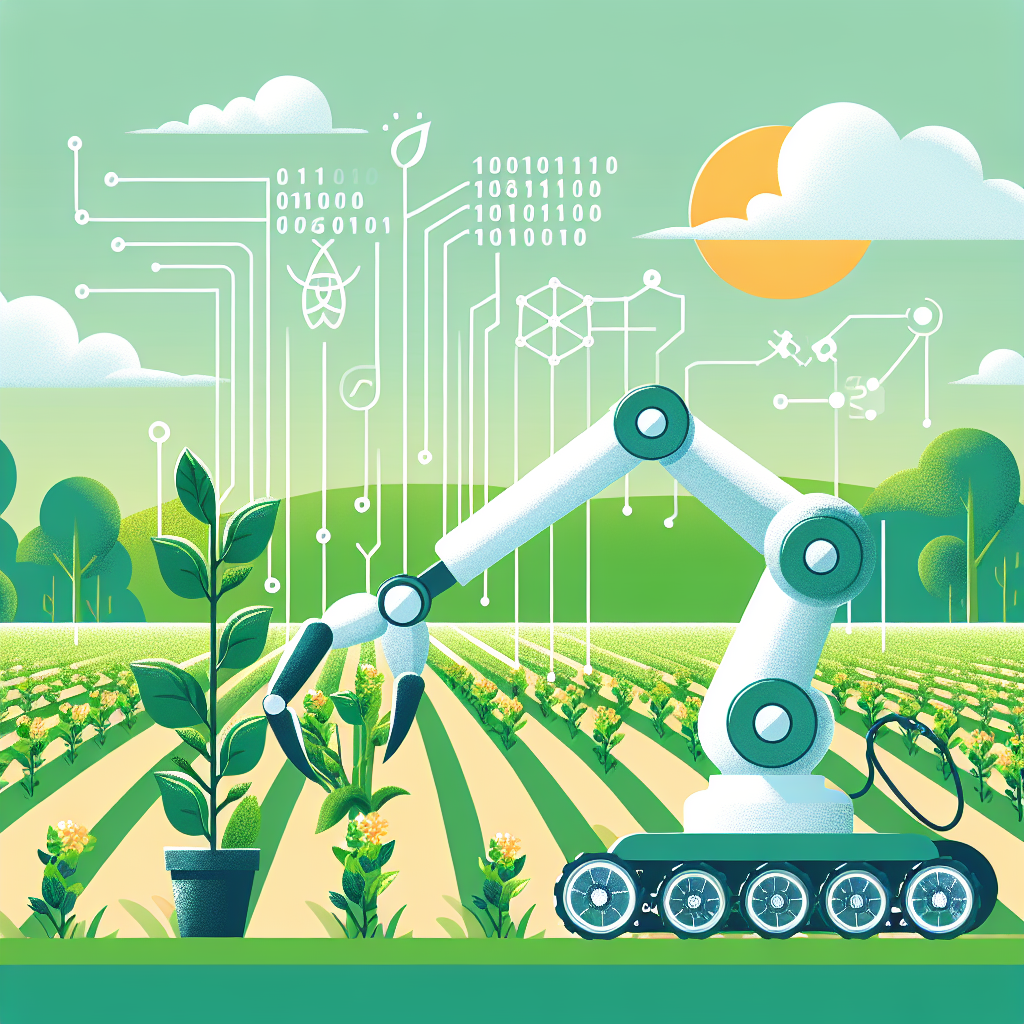AI Deployment in Agriculture: Improving Crop Yields
Introduction
The agriculture industry is facing numerous challenges in the 21st century, including climate change, water scarcity, and an increasing global population. To address these challenges and improve crop yields, farmers are turning to artificial intelligence (AI) technology. AI deployment in agriculture has the potential to revolutionize the way crops are grown, harvested, and managed. By leveraging AI algorithms and data analytics, farmers can make more informed decisions, optimize resource usage, and ultimately increase productivity and profitability.
AI Deployment in Agriculture
AI technology is being deployed in agriculture in a variety of ways, including precision farming, crop monitoring, pest control, and yield prediction. Precision farming is a technique that involves using AI algorithms to analyze data from sensors, drones, and satellite imagery to optimize planting, irrigation, and fertilization practices. By using AI-powered tools, farmers can identify areas of their fields that are underperforming and take corrective actions to improve crop yields.
Crop monitoring is another important application of AI in agriculture. By using AI algorithms to analyze images captured by drones or satellites, farmers can detect early signs of disease, pest infestations, or nutrient deficiencies in their crops. This allows farmers to take proactive measures to prevent crop losses and ensure a healthy harvest.
AI technology is also being used in pest control. By analyzing weather data, soil conditions, and historical pest infestation patterns, AI algorithms can predict when and where pests are likely to strike. This allows farmers to deploy targeted pest control measures, such as precision spraying, to minimize the use of chemicals and reduce environmental impact.
Furthermore, AI is being used to predict crop yields. By analyzing historical weather data, soil conditions, and crop growth patterns, AI algorithms can forecast how much yield farmers can expect from their fields. This information is invaluable for farmers when making decisions about marketing, pricing, and crop rotation.
Benefits of AI Deployment in Agriculture
There are numerous benefits to deploying AI technology in agriculture. One of the main advantages is increased productivity. By using AI-powered tools to optimize planting, irrigation, and fertilization practices, farmers can maximize crop yields and reduce waste. This leads to higher profits and a more sustainable farming operation.
AI deployment in agriculture also improves resource efficiency. By using AI algorithms to analyze data from sensors and drones, farmers can identify areas of their fields that are over- or under-watered, over-fertilized, or under-utilized. This allows farmers to adjust their practices accordingly and reduce water usage, fertilizer usage, and land degradation.
Another benefit of AI deployment in agriculture is improved crop quality. By using AI-powered tools to monitor crops for disease, pests, and nutrient deficiencies, farmers can take proactive measures to prevent crop losses and ensure a healthy harvest. This leads to higher-quality crops that are more marketable and command higher prices.
FAQs
Q: How much does it cost to deploy AI technology in agriculture?
A: The cost of deploying AI technology in agriculture varies depending on the size of the farm, the complexity of the technology, and the level of customization required. However, as AI technology becomes more widespread and accessible, the costs are expected to decrease over time.
Q: Is AI technology in agriculture safe for the environment?
A: Yes, AI technology in agriculture is designed to be environmentally friendly. By optimizing resource usage, reducing waste, and minimizing the use of chemicals, AI technology can help farmers reduce their environmental impact and promote sustainable farming practices.
Q: Can small-scale farmers benefit from AI deployment in agriculture?
A: Yes, small-scale farmers can benefit from AI deployment in agriculture. In fact, AI technology can be especially beneficial for small-scale farmers who may not have the resources or expertise to optimize their farming practices. By leveraging AI-powered tools, small-scale farmers can increase productivity, reduce costs, and improve crop quality.
Conclusion
AI deployment in agriculture has the potential to revolutionize the way crops are grown, harvested, and managed. By leveraging AI algorithms and data analytics, farmers can make more informed decisions, optimize resource usage, and ultimately increase productivity and profitability. With the numerous benefits of AI technology in agriculture, it is clear that AI deployment is a key tool for improving crop yields and sustaining the future of farming.

